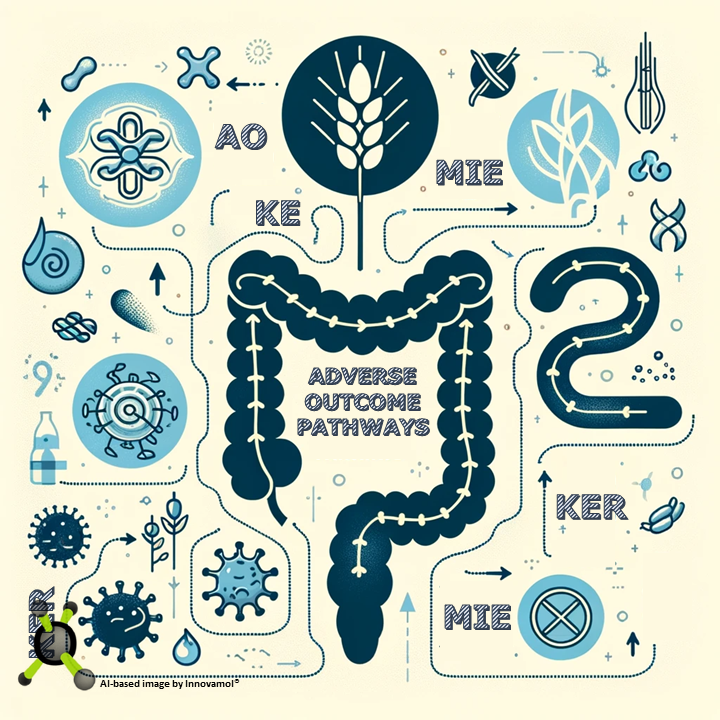Did you know that celiac disease is not solely triggered by gluten ingestion? In fact, there are several other events that can potentially trigger this widespread autoimmune disorder. Discover more about the topic in our recent study “Outsourcing preparatory work based on a systematic literature review for the development of adverse outcome pathways (AOPs) relevant for the capacity of proteins to trigger celiac disease” published in the EFSA Journal.
Our latest study on celiac disease (CD) in collaboration with EFSA has unveiled new insights into what triggers this complex condition. After a systematic review of the scientific literature with our LitSearch protocol registered in PROSPERO, we’ve discovered that not only gluten but also non-gluten proteins, certain bacterial and viral peptides, and even a specific autoantigen are involved in triggering CD. Our study has unearthed an intriguing scientific finding: some of these triggers can imitate gluten proteins, fooling the body into causing the disease and possibly worsening its symptoms. In addition, the study also allowed to reveal various risk factors for CD beyond molecular events, including genetic predisposition (HLA-DQ variants), immune responses to specific gliadin peptides, altered cytokine levels, dietary habits, birth method, maternal health, early life infections, intestinal microbiota, metabolic imbalances, and receptor correlations, each may contribute differently to the disease’s development.
In order to effectively organize scientific data, we took advantage of the Adverse Outcome Pathways (AOPs) framework proposed by the OECD where sequence of interconnected biological events, i.e. molecular initiating events (MIE), key events (KE), key event relationships (KER) and adverse outcome (AO), are arranged in a logical and causal chain that can be used to assess and predict CD triggering events.
Through the provision of a comprehensive overview of AOPs and other risk factors, this work delivered a substantial contribution to the scientific comprehension of CD as a phenomenon that extends beyond being a mere physiological response to gluten.
“The good thing about science is that it’s true whether or not you believe in it” – Neil deGrasse Tyson

